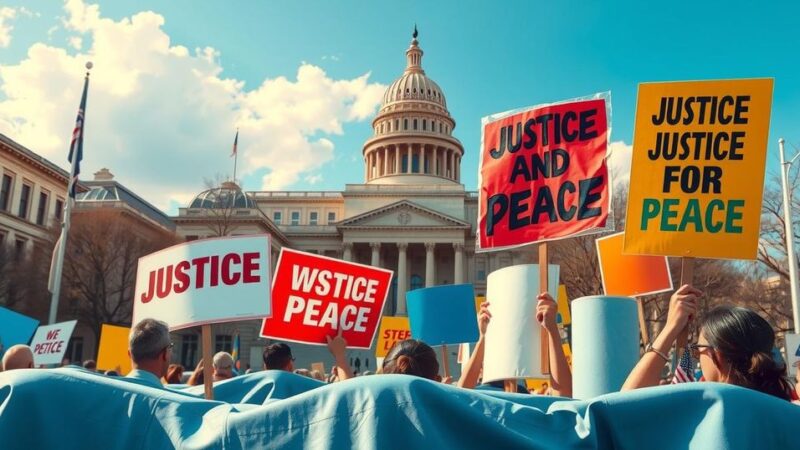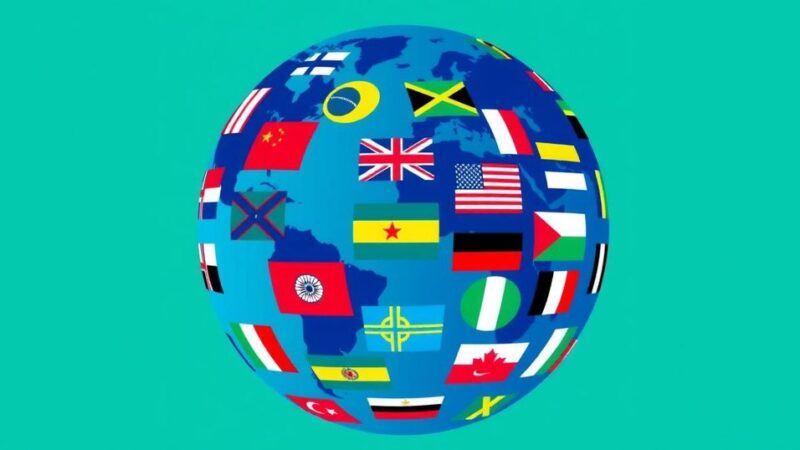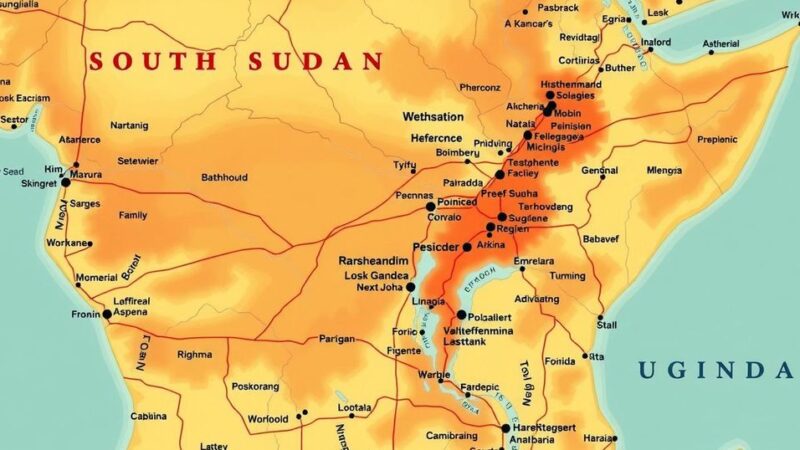The DRC is seeking a minerals-for-security deal with the U.S. amid escalating violence from the M23 rebel group. Ongoing discussions involve potential military assistance in exchange for mineral rights, following inspiration from U.S. support offered to Ukraine. Analysts express caution regarding the feasibility and implications of such an agreement, as DRC faces challenges including significant armed conflict, corruption, and external influences from neighboring Rwanda and China.
The Democratic Republic of the Congo (DRC) is actively pursuing a minerals-for-security agreement with the United States in response to intensifying violence stemming from armed conflict, particularly from the M23 rebel group. DRC officials report that ongoing discussions, aimed at securing U.S. military support in exchange for mineral rights, are currently taking place. This initiative is particularly pertinent given that the M23 has gained ground in resource-rich territories.
The call for a minerals deal arises as the DRC confronts severe challenges, including over 7,000 deaths and widespread displacement since January. Although specifics of a potential agreement remain undisclosed, there is speculation regarding the U.S. possibly deploying troops or providing military equipment to aid in conflict containment. Experts express skepticism regarding whether such a collaboration fits within the framework of President Trump’s “America First” policy.
Specifically, analysts like Daniel van Dalen suggest that any agreement would likely see the U.S. supplying military resources rather than direct troop involvement. This proposition has been informed by the U.S. support offered to Ukraine amid its conflict with Russia, which involved a minerals exchange, inspiring DRC’s discussions.
Discussions with U.S. officials were also pursued by DRC representatives, including Andre Wameso, who presented a proposal for a partnership involving mutual economic benefits. Key components of the DRC’s proposal include facilitating access to its mines for U.S. defense and tech companies, alongside a share in a joint mineral stockpile. In return, the U.S. would provide military training and support to DRC forces.
Furthermore, DRC has faced long-standing armed conflicts, primarily affecting its military capacities due to systemic corruption and governmental inefficiency. With various armed groups, including the M23, controlling significant mining locales, President Felix Tshisekedi’s administration prioritizes quelling the rebellion. Tensions with neighboring Rwanda complicate this landscape, as allegations abound regarding Rwandan support for M23.
The U.S. stands to gain direct access to DRC’s mineral wealth. Historically, DRC has engaged in similar deals with China, which has dominated the minerals market, especially cobalt mining. Recent comments from DRC officials indicate a pivot from China and an openness to U.S. investment in local minerals. However, experts caution that the U.S. might pursue transactional dealings rather than outright ownership of DRC’s mining assets to maintain a balanced approach.
The Democratic Republic of the Congo is striving to establish a minerals-for-security alliance with the United States amid ongoing conflicts, primarily with the M23 rebel group. While discussions regarding military assistance and mineral rights are underway, skepticism exists regarding U.S. involvement level under the Trump administration’s policies. Ultimately, this situation reflects the DRC’s broader attempts to secure international support and stabilize its region while navigating existing relationships with other global powers, particularly China.
Original Source: www.aljazeera.com






